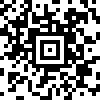I do. The is “el/la” and a is “un/una”.
In my dad’s language and my second language, it’s “the” and “a”
Yes. In danish either “en” or “et” goes in front of nouns like this: “en kat” and “et hus”. This is equal to “a cat” and “a house”.
If it’s in specific, it goes at the end of the word instead like this: “katten” and “huset”. This is equal to “the cat” and “the house”.
Yes.
English.
I’ve heard of that one. I think the is “the” and a is “a”.
I believe that “a” is either “a” or “an”; it depends.
Also sometimes “an”.
Truly a terrible language.
russian, nope!
Portuguese, we do and we use it in everything. Even something simple like “for my Father” most of us say “for the my Father”.
“Sou filho do meu pai”
Translating literally becomes:
“am son of the my Father”
That’s not true for all Portuguese speakers. Most brazilian northeasterners don’t use it as you described, as it’s unnecessary.
Edit: The way I would say the sentences above:
“Pra meu pai”
“Sou filho de meu pai”I was gonna edit the comment to add a similar note right after posting but I was already half asleep and apparently I didn’t do it.
Estou a aprender o português!!
Mandarin:
No “the,” you just say the noun and that’s it.
“A” or any other quantity of a noun is generalized as a number, followed by a character indicating quantity, followed by the noun. “An apple” is 一个苹果 (yi ge ping guo), 一 literally means one, 个 is the character that denotes quantity (it’s the most common one but some nouns have different quantity adjectives), 苹果 is apple. Two is an exception because there’s a special character for it that’s different from the number two (两个苹果 as opposed to 二个苹果), but every other number quantity is the same as the number itself.
I like Chinese as a language

No (Korean), and it is what Korean people including myself often have trouble with.
Funny story. I know an old Chinese man who has a stutter. When he starts a sentence he often repeats the the the the the before he gets going. It sounds like removed removed removed. So far no one has confronted him but I always worry it will happen some day.
deleted by creator
A very bad word that we’re not even supposed to say on the internet, believe it or not.
Oh nooo 😭
In german we have der/die/das for the and ein/eine for a.
Don’t tell them about the noun cases though
And also completely unhinged declensions for them… Really, WTF Germany? 😭
Icelandic has no word for “a.” A noun without a definite article suffix can be either “noun” or “a noun.” Then there is a suffix for definite article (epli “apple” -> eplið “the apple”). There is also a slightly more obscure hinn/hin/hið which can mean “the” as a separate word, but that’s not really used in most situations.
Yes, we do.
“Il/lo/la/i/gli/le” instead of “the”, the precise article is chosen taking in consideration gender and plurality. We even have elliptic forms with " l’ ," for words starting with a vowel.
Then we have “un/uno/una” instead of “a”. Again elliptic form "un’ " for feminine words starting with a vowel.
Italian here 🤌
In German we have three genders for words, neutral, female and male. These are spread around pretty randomly:
Die Tür / The Door is female Das Auto /The Car is neutral Der Bus /The Bus is male
We also have ‘ein’ which is the equivalent of “a” in english. Ein Auto / A Car.
The difference is the same as in german, one is specific, the other more general.
Si exista en Español y inglés, son artículos definidos ( el, la, los, las ) y artículos indefinidos ( un, una, unos, unas )
Yes, they exist in Spanish and English, as indefinite articles ( a, an ) and definite articles, which English has one ( the )
Japanese does not to my knowledge have any articles, これは何 could mean what is this or what are these. りんご could be one or more apples.
idk
No we don’t (Slovak)
















